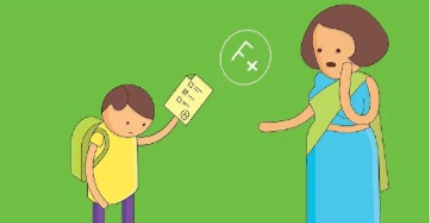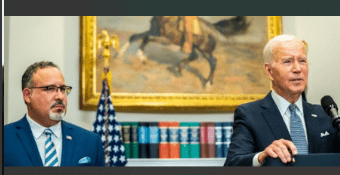“Balancing Education: Reimagining Standardized Testing and Embracing Holistic Learning”

As another standardized testing season approaches, the Balancing Education landscape brims with familiar scenes of administrator anxiety, teacher turmoil, and student disaffection. In high schools especially, these mass assessments often serve as barometers not only of academic ability but also of student alienation and boredom. Yet, despite their entrenched role in educational policy, the prevailing emphasis on just two subjects—math and English—raises crucial questions about the broader purpose of education.
READ: New York Businesses Ordered to Require Masks Indoors or Vaccine Proof
Balancing Education
Math and English undoubtedly hold significance as foundational subjects, equipping students with essential literacy and numerical skills crucial for professional success in various fields. However, the disproportionate focus on these areas risks overshadowing the importance of other disciplines such as science, history, government, economics, non-English languages, and the arts.
In an increasingly interconnected world, linguistic diversity is an asset, yet American education falls short in fostering multilingualism among its students. While considerable efforts are made to teach English to non-native speakers, resources allocated for teaching foreign languages to native English speakers remain inadequate. This disparity not only limits students’ linguistic capabilities but also perpetuates cultural insularity.
Similarly, despite growing initiatives to enhance STEM education, societal misconceptions and gaps in science understanding persist. A significant segment of the population remains skeptical of established scientific principles, such as climate change, indicating a critical need to prioritize comprehensive science education. Furthermore, as democracy faces unprecedented challenges and civic ignorance proliferates, devaluing social studies education poses significant risks to societal cohesion and informed citizenship.
Amidst a burgeoning crisis in teenage mental health, the arts emerge as a vital resource for promoting emotional well-being and creative expression. However, the marginalization of arts education in favor of subjects deemed more “practical” undermines students’ holistic development and deprives them of avenues for self-expression and personal growth.
While standardized testing ostensibly serves as a tool for assessing student learning and guiding educational policy, its narrow focus on math and English often distorts educational priorities and stifles innovative teaching approaches. The prevailing “data-driven” philosophy, characterized by an obsessive pursuit of improving test scores, risks reducing education to a soulless exercise in metrics, devoid of genuine intellectual curiosity and passion for learning.
Amidst this testing-centric paradigm, educators find themselves navigating a precarious balancing act—striving to impart comprehensive knowledge and critical thinking skills while contending with the pressures of standardized testing mandates. Many educators, despite the constraints imposed by the prevailing system, continue to champion holistic education, recognizing the intrinsic value of subjects beyond math and English.
The shift towards digital testing platforms heralds a new era in standardized testing, yet it fails to address the underlying flaws in the system. Rather than adding more standardized tests to assess every subject, a fundamental reevaluation of our approach to measuring student learning and teacher effectiveness is imperative. Embracing a model of continuous assessment, facilitated by technology, could provide a more nuanced understanding of student progress and instructional efficacy.
In this reimagined educational landscape, teachers emerge as facilitators of learning, guiding students on a journey of intellectual exploration and growth. By fostering a culture of curiosity, critical inquiry, and interdisciplinary engagement, educators can empower students to become lifelong learners equipped to navigate an increasingly complex world.
Ultimately, education is a continuum—a dynamic process that extends far beyond the confines of standardized testing. By nurturing a love for learning and fostering intellectual curiosity across all disciplines, educators can cultivate a generation of thoughtful, resilient individuals capable of confronting the challenges of the future with confidence and conviction.




